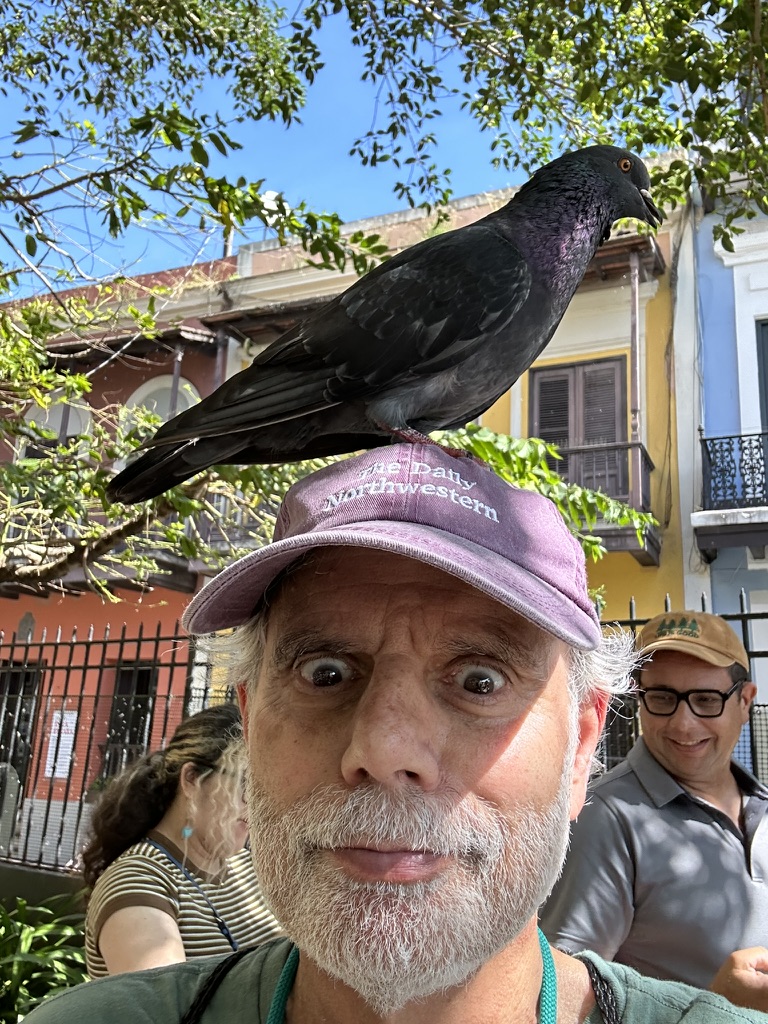Evanston RoundTable, March 16, 2012
What is it about Kennedy assassination that continues to fascinate and haunt the national psyche? There was the shock of the event, the 9/11 of its time. And the shooting of Oswald, two days later, the first murder on live television. Another aspect, as Norman Mailer has pointed out, was the asymmetry between assailant and victim. It was unfathomable, Mailer wrote, “that a small lonely man felled a giant in the midst of his limousines, his legions, his throng, and his security. If such a non-entity destroyed the leader of the most powerful nation on earth, then a world of disproportion engulfs us, and we live in a universe that is absurd.”
Adding to the sad absurdity was the world of troubles that seemed to ripple from the assassination: Vietnam…Nixon… campus riots…Martin Luther King’s assassination…race riots. So much might have changed if only Oswald had been even momentarily distracted from his sniper’s perch on the top floor of the Texas Book Depository building at 12:30 on that awful Friday afternoon.
That is the premise for Stephen King’s greatly entertaining new book “11/22/63: A Novel.” In this alternate history, a 21st century time traveler goes back to midcentury America to try to stop Oswald and unravel the consequences.
Maine high school English teacher Jake Epping is presented the opportunity by an acquaintance named Al Templeton, who runs a local diner. The pantry at the back of Al’s diner has a door that leads outside. Step through it, Al has discovered, and it is exactly two minutes to noon on September 9, 1958.
Venturing out into the past, Al encounters some curious quirks in the physics of time travel. No matter how long you dwell there, when you return to the present, only two minutes have elapsed. More consequential, every time you go back, it’s a “reset,” meaning any change that you caused simply vanishes. When Al returns to the past, it’s as if he had never been there.
Al starts out using the time portal for purely mundane purposes. He buys hamburger meat at 1958 prices and returns to the present to make “Al’s Famous Fatburgers” at a price that yields him a fat profit.
But before long he conceives a far-more monumental ambition. He decides that he must save the nation’s 35th president. He makes his way to Dallas and stalks Oswald. Advanced lung cancer forces him back to the present, and to the realization that he’s not strong enough to finish the job. So he recruits Jake, a young, divorced man with nothing to lose and a world of accolades to gain.
Jake is unsure, at first; there are so many perils. But Al argues that Kennedy’s assassination was one of the watershed moments of the 20th century. “If you ever wanted to change the world,” he tells Jake, “this is your chance. Save Kennedy, save his brother. Save Martin Luther King. Stop the race riots. Stop Vietnam, maybe. Get rid of one wretched waif, buddy, and you could save millions of lives.”
It’s a convincing pitch, especially when Jake realizes that if things go wrong, he can simply start over with a reset. After some hesitation, he proceeds through the pantry door and into 1958. His maiden voyage provides an interesting glimpse into midcentury America. Cars are bigger and more imaginatively designed. Food tastes a lot richer without preservatives. Air pollution is rife, however, and people smoke everywhere. Accents are more pronounced, Jake finds, because TV has not yet eroded regional differences. A gallon of gas costs 19.9 cents; a restaurant meatloaf with apple pie is 95 cents.
His first order of business is to make sure that if he kills Oswald, and then returns to the present, the change will stick. Hence a test run, which proves to have nettlesome consequences. Then he needs to confirm that Oswald acted alone, because it would be pointless to dispatch the Texan and find that someone else has shot the president.
Unfortunately, there are consequences to messing with the past. One is the “butterfly effect”: even small, seemingly inconsequential actions can change lives and events unpredictably. Another is that the past apparently doesn’t want to be changed – it’s “obdurate” – and puts all sorts of obstacles into his path.
The problem of moving the narrative through five years is partly solved by introducing a love interest for Jake. Sadie is the librarian at the school where Jake lands a teaching job. Their romance moves on a parallel track with the Oswald story, until, finally, they converge, with tragic consequences for both – and for the nation.
To say more would be to spoil key plot elements, but it is to King’s credit as a storyteller that he makes the characters breathe and the narrative vibrate with a whopping good story. The way he pulls “11/22/63” together is a marvel of construction and imagination.





+ There are no comments
Add yours